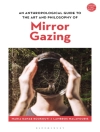Is moral goodness really so desirable in the way that its proponents through the ages would like us to believe? For instance, in our time, there is even this latest version of the popular moral idea shared by many, when Dalai Lama suggested that "[w]e need these human values [of compassion and affection]….Even without religion, …we have the capacity to promote these things." (WK 2009)The naivety of this popular moral idea can be contrasted with an opposing (critical) idea advocated not long ago by Sigmund Freud (1966), who once wrote that "men are not gentle creatures who want to be loved, and who at the most can defend themselves if they are attacked; they are, on the contrary, creatures among whose instinctual endowments is to be reckoned a powerful share of aggressiveness. As a result, their neighbor is for them…someone who tempts them to satisfy their aggressiveness on him, to exploit his capacity for work without compensation, to use him sexually without his consent, to seize his possessions, to humiliate him, to cause him pain, to torture and to kill him. Homo homini lupus."Contrary to the two opposing sides of this battle for the high moral ground, morality and immorality are neither possible nor desirable to the extent that their respective ideologues would like us to believe. But one should not misunderstand this challenge as a suggestion that ethics is a worthless field of study, or that other fields of study (related to ethics) like political philosophy, moral psychology, social studies, theology, or even international relations should be dismissed. Needless to stress, neither of these two extreme views is reasonable either.Instead, this book provides an alternative (better) way to understand the nature of ethics, especially in relation to morality and immorality-while learning from different approaches in the literature but without favoring any one of them (nor integrating them, since they are not necessarily compatible with each other). This book offers a new theory to transcend the existing approaches in the literature on ethics in a way not thought of before.This seminal project is to fundamentally alter the way that we think about ethics, from the combined perspectives of the mind, nature, society, and culture, with enormous implications for the human future and what I originally called its "post-human" fate.
Peter Baofu
Beyond Ethics to Post-Ethics [EPUB ebook]
Beyond Ethics to Post-Ethics [EPUB ebook]
ซื้อ eBook เล่มนี้และรับฟรีอีก 1 เล่ม!
รูป EPUB ● หน้า 415 ● ISBN 9781617353130 ● สำนักพิมพ์ Information Age Publishing ● การตีพิมพ์ 2011 ● ที่สามารถดาวน์โหลดได้ 3 ครั้ง ● เงินตรา EUR ● ID 5957207 ● ป้องกันการคัดลอก Adobe DRM
ต้องใช้เครื่องอ่านหนังสืออิเล็กทรอนิกส์ที่มีความสามารถ DRM












